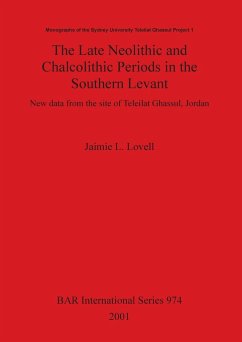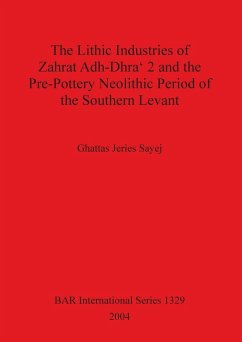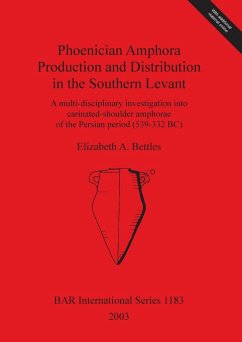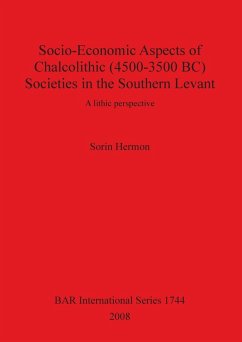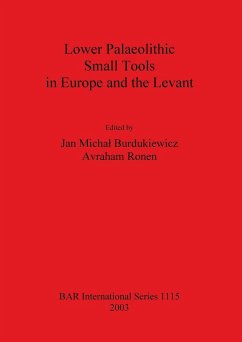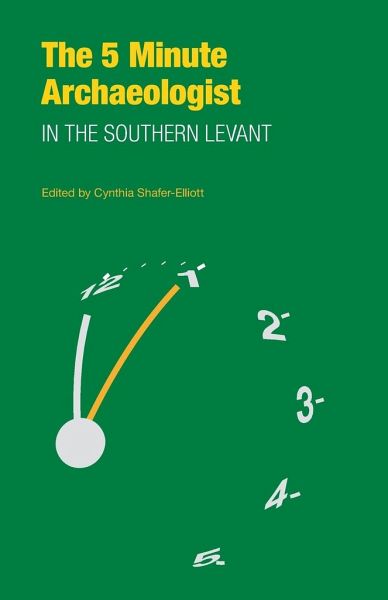
The Five-Minute Archaeologist in the Southern Levant
Versandkostenfrei!
Versandfertig in 1-2 Wochen
23,99 €
inkl. MwSt.

PAYBACK Punkte
12 °P sammeln!
The Five-Minute Archaeologist in the Southern Levant is a user-friendly exploration of basic concepts within archaeology and the techniques and methods used by archaeologists in the field. It is intended for students and lay readers alike, such as those participating in community archaeology for the first time, and would be an excellent reader for introductory level courses on the archaeology of the Southern Levant. Topics range from basic questions such as 'how do archaeologists chose where to dig?' to surveys of archaeological concepts and types of archaeology, written by specialists in thos...
The Five-Minute Archaeologist in the Southern Levant is a user-friendly exploration of basic concepts within archaeology and the techniques and methods used by archaeologists in the field. It is intended for students and lay readers alike, such as those participating in community archaeology for the first time, and would be an excellent reader for introductory level courses on the archaeology of the Southern Levant. Topics range from basic questions such as 'how do archaeologists chose where to dig?' to surveys of archaeological concepts and types of archaeology, written by specialists in those particular fields. Chapters are informal and relaxed - more like a chat or discussion that will help to answer some of the basic questions that archaeologists are often asked.




